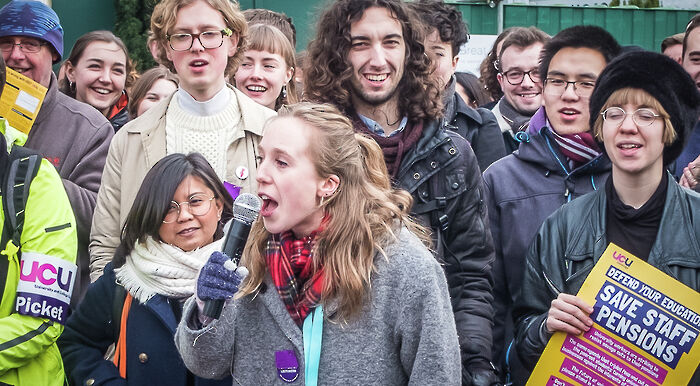CUSU Council’s voting members are not elected to be political; this needs to change
By making JCR and MCR presidents and vice-presidents the voting members of CUSU Council, their duty to speak on behalf of an entire student body obstructs truly political voting, argues Connor MacDonald

As representative organizations come, CUSU Council is certainly an oddity. While its members (JCR presidents and vice presidents) are ‘directly elected’ to become voting members of Council when they are elected to their JCR, this is rarely understood to be a significant part of their mandate. Speaking as a former JCR President, I can count on one hand the number of students who kept up to date on the goings on in Mill Lane, and the students who actually ever cared enough to consistently raise issues with me numbered in the zeros.
Considering the fact that CUSU is meant to be the voice of students, the primary body by which we make our voices known, my experience of student interest in CUSU Council is disparaging. What's more, amidst the awful events of the past few weeks, I couldn't shake the uncomfortable feeling that it often seems as if the national press is more interested in the decisions made at Council than members of the student body, regardless of the motivations behind that interest.
CUSU will remain an irrelevant body so long as the people elected to it are elected by accident. I don’t mean this in a literal sense, but rather that I have yet to meet, and I proclaim that I will never meet, a JCR or MCR President who was elected primarily (or even secondarily) to attend CUSU Council once every two weeks. On a ranked list of importance encompassing all the activities a JCR has to perform, attending CUSU Council would have a hard time cracking the top 10.
“On a ranked list of importance encompassing all the activities a JCR has to perform, attending CUSU Council would have a hard time cracking the top 10”
The fact is, JCR presidents are usually so busy working on College policy that they hardly have time to set policy for the University as a whole. Even if they did take an inordinate interest in the workings of CUSU (and the list of JCR presidents that do can yearly be counted on one hand), there simply is no time to scrutinise policies properly. I don’t know how many weeks I’ve come to Council having not actually read the motions until the day of, and by that point it is both rude and counter-productive to offer amendments.
This difficulty is particularly acute when it comes to the liberation campaigns and Sabbatical Officers, all of which are required to report to CUSU Council. Most of the issues they deal with are rather sensitive and technical insofar as they are trying to enact pretty substantial policy change. This means that it would be difficult to give proper scrutiny at the best of times, leaving CUSU Council to ask inane questions and wave through policy proposed by officers - and that is when we have anything to debate at all.
It isn’t just because of lack of time or diligence either. JCR presidents are often resolutely apolitical, precisely because they have a mandate to represent students across ‘ideological’ divides. Lacking any sort of ‘CUSU’ platform, JCR representatives will leave any overtly political questions to sabbs.
Similarly, the recent discussion over supporting a second Brexit referendum was tabled because JCRs were worried about taking an ‘overtly political’ position without consulting members, although it was obvious to everyone the consultations would be perfunctory and attract the voices already at CUSU Council supporting or opposing the motion anyway. Indeed, it is no accident that six of the seven speakers on the motion at Council were members of political societies, with the most vocal JCR representatives falling into this category too.
As absurd as last council was, though, it also shows a path out of the rut. There are clearly students who do care about CUSU, but they are often not the students who run the JCRs. To actually have an active council, we should be electing people who want to be there – and they should be directly elected by the students.
I see no reason why we can’t turn CUSU into some kind of quasi-parliament – with slates and platforms that offer varying positions on a range of issues. Using CUSU’s complex software, we could have STV elections, elect about 20-30 people to CUSU council, and actually offer definite alternatives to student voters. While the turnout would be low (no more than 20-30 percent like all CUSU elections), at least it would be more intentional than the current elections for CUSU reps. Elections where CUSU Council never even gets a mention.
If we really want to make CUSU Council relevant, direct elections are the way to go.
 News / Uni Scout and Guide Club affirms trans inclusion 12 December 2025
News / Uni Scout and Guide Club affirms trans inclusion 12 December 2025 News / Pembroke to convert listed office building into accom9 December 2025
News / Pembroke to convert listed office building into accom9 December 2025 Features / Searching for community in queer Cambridge10 December 2025
Features / Searching for community in queer Cambridge10 December 2025 News / Uni redundancy consultation ‘falls short of legal duties’, unions say6 December 2025
News / Uni redundancy consultation ‘falls short of legal duties’, unions say6 December 2025 News / Gov declares £31m bus investment for Cambridge8 December 2025
News / Gov declares £31m bus investment for Cambridge8 December 2025









